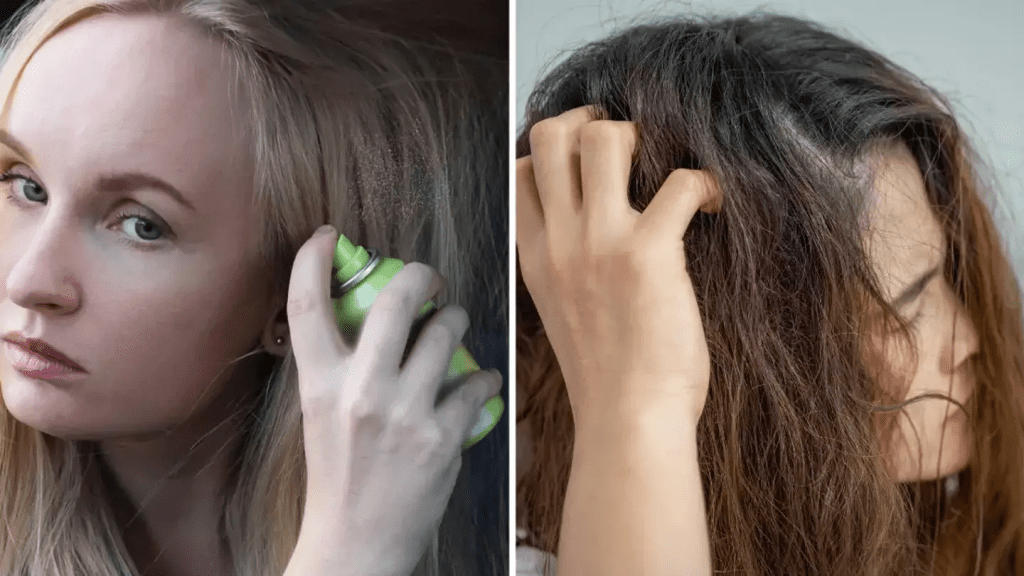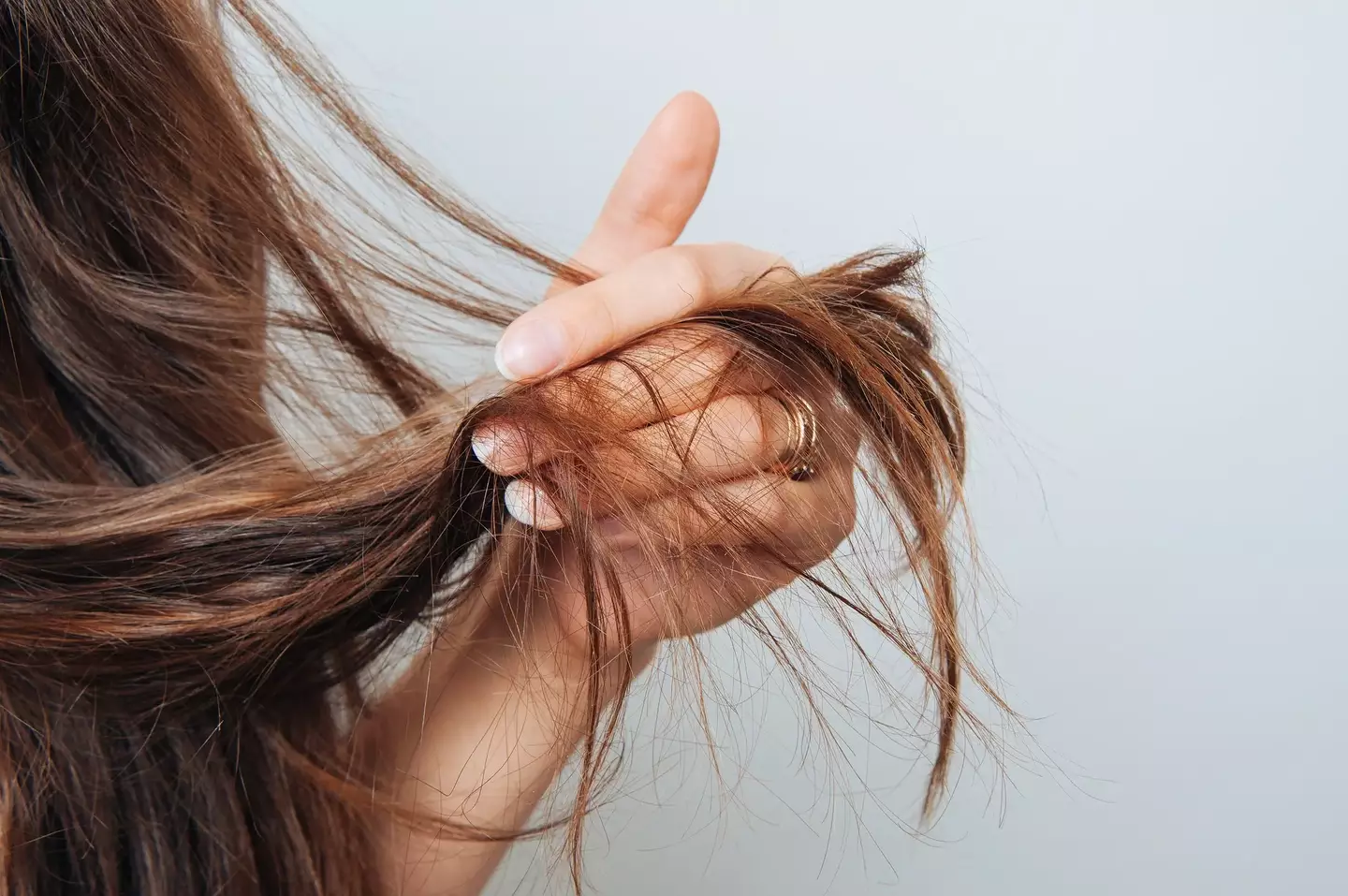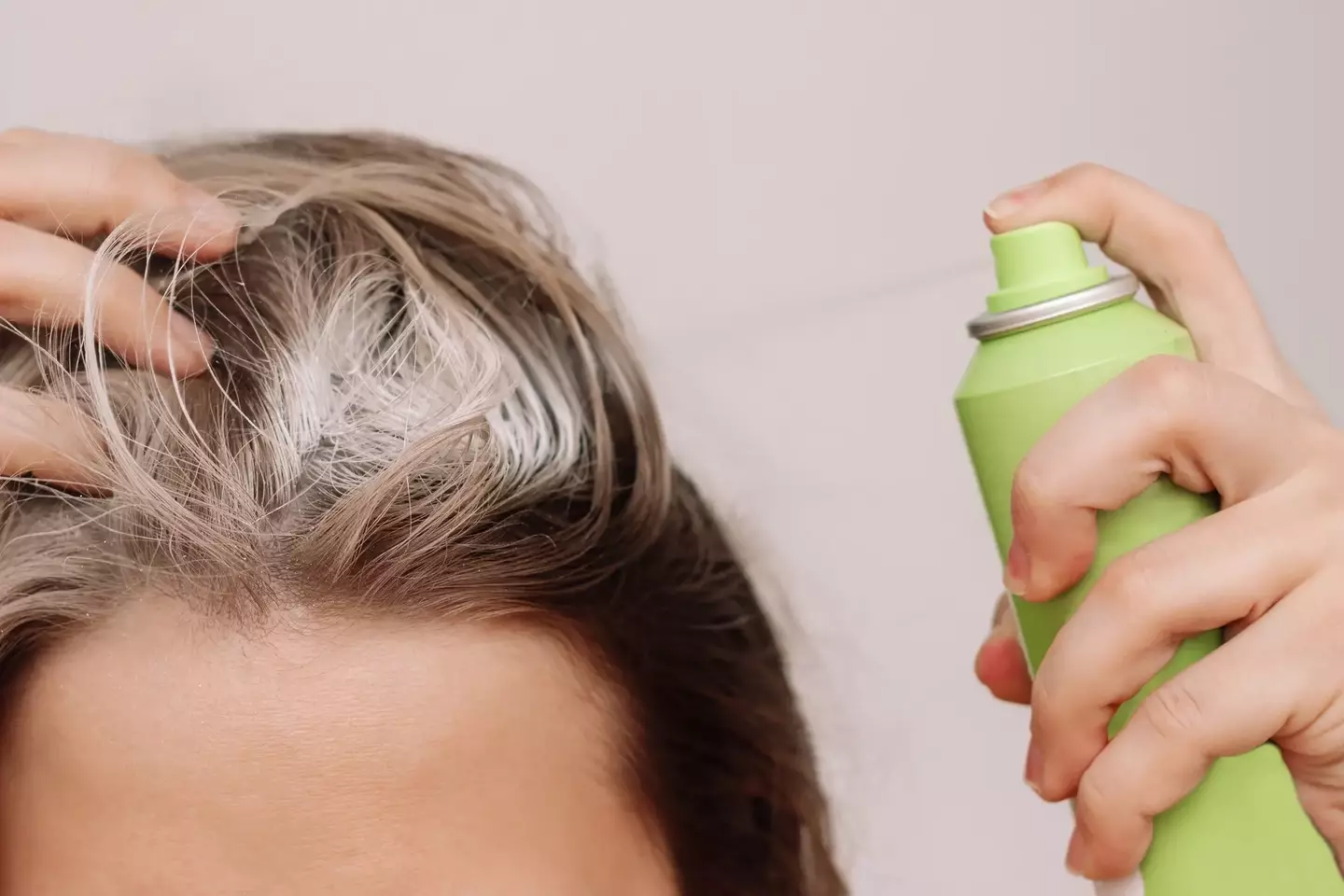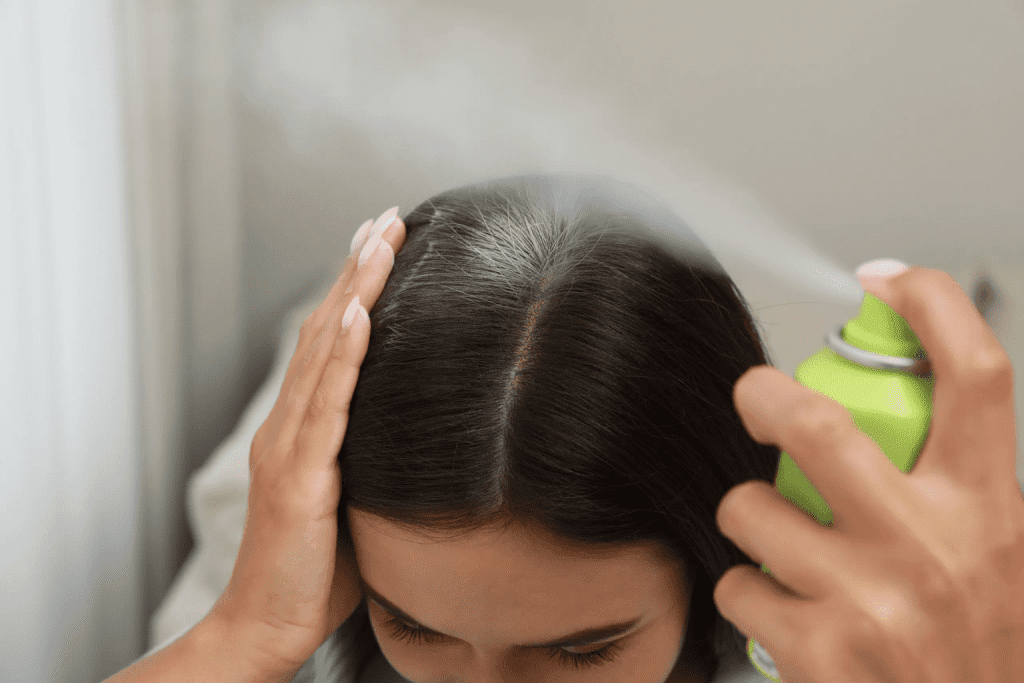Dry shampoo has long been a quick-fix solution for those busy mornings when you simply don’t have time to wash, dry, and style your hair. It’s convenient, easy to use, and promises to refresh your hair with minimal effort. However, recent studies and expert advice have revealed some serious concerns about the long-term effects of using dry shampoo, making it a product you might want to reconsider. If you’re someone who relies on dry shampoo as part of your daily routine, it’s time to take a closer look at what it’s doing to your scalp and hair health.
What is Dry Shampoo, and How Does It Work?

Dry shampoo has been marketed as a quick and convenient solution for those looking to refresh their hair between washes. Typically in spray or powder form, it absorbs excess oils from the scalp, giving your hair a cleaner, fresher appearance without the need for water. The key ingredients in most dry shampoos are starch and alcohol, which help to absorb oil and grime, leaving your hair looking less greasy.
However, while it may seem like a miracle product for saving time, the reality is that dry shampoo doesn’t actually clean your hair. In fact, it can do more harm than good when used frequently.
Why Dry Shampoo Doesn’t Clean Your Hair
It’s important to understand that dry shampoo is not a shampoo at all—it’s a temporary fix that merely masks the problem. As science writer Rebecca Joy Stanborough points out, dry shampoo doesn’t remove dirt, buildup, or grime from your hair. All it does is absorb excess oil, which can make your hair look cleaner, but it doesn’t address the actual cleanliness of your scalp.
Unlike traditional shampoo, which cleanses your hair by removing dirt and oils, dry shampoo only covers up the problem without solving it. Over time, this can lead to an accumulation of oils, dust, and residue on your scalp, making it feel greasy and unclean.
The Dangers of Using Dry Shampoo Too Often
While dry shampoo can be useful in a pinch, using it frequently can lead to a number of scalp and hair issues. Here’s a breakdown of the potential dangers:
1. Scalp Damage and Follicle Blockage
One of the most concerning effects of dry shampoo is the buildup it leaves on your scalp. The starches and alcohol used in these products can clog your hair follicles, leading to an array of scalp problems. This can result in itching, irritation, and even folliculitis—an infection caused by blocked hair follicles.
In addition, the residue left behind by dry shampoo can cause the scalp to become excessively dry, potentially leading to conditions like seborrheic dermatitis. This condition causes red, inflamed skin and is often accompanied by itching and flaking. The more often you use dry shampoo, the more likely it is that these issues will develop, leaving you with a scalp that’s far worse off than before.

It can damage your hair (Cristalov / Getty Images)
2. Hair Breakage and Dryness
Another issue with dry shampoo is that the alcohol in many formulas can dry out your hair, making it more prone to breakage. When your hair becomes excessively dry, the strands can crack and break when you brush or style it. This leads to split ends, thinning hair, and an overall unhealthy appearance.
While dry shampoo may provide a temporary volume boost or freshen up your hair, the long-term effects on hair health can be damaging. If you find your hair breaking more easily after using dry shampoo regularly, it might be time to reassess its place in your beauty routine.
Is Dry Shampoo Linked to Serious Health Risks?
Perhaps the most alarming concern surrounding dry shampoo is its potential link to serious health issues, including cancer. Some dry shampoo brands contain talc, a mineral that, in its natural form, may contain asbestos—an agent known to cause cancer. Though many dry shampoos today advertise “asbestos-free” talc, there is still concern about the safety of talc-based products. Studies have even raised suspicions that talc, free of asbestos, could still be linked to ovarian cancer.

Talc is linked to cancer (Marina Demeshko / Getty Images)
Given the limited research in this area, organizations like the American Cancer Institute recommend avoiding talc-based products whenever possible. With this in mind, it’s essential to check the ingredients of your dry shampoo and make sure it’s free of talc, especially if you’re using it on a daily basis.
Alternatives to Dry Shampoo: How to Keep Your Hair Fresh Safely
If you’re concerned about the negative effects of dry shampoo, there are alternative ways to keep your hair looking and feeling fresh without compromising your health.
1. Regular Shampoo and Conditioner
The best way to ensure your hair and scalp are clean and healthy is to stick to regular washing. While it may take more time, washing your hair with a gentle shampoo removes buildup, dirt, and oils, leaving your hair truly clean. If you have dry or damaged hair, look for moisturizing shampoos that nourish and protect your locks.
2. Scalp Care and Exfoliation
In addition to shampooing, it’s a good idea to exfoliate your scalp regularly. This helps remove dead skin cells, buildup, and product residue that could lead to clogged follicles and scalp issues. You can find scalp exfoliators that gently massage and cleanse your scalp without harsh chemicals.

3. Refreshing Sprays Without Starch or Alcohol
If you want a quick refresh between washes, look for hair products that hydrate your scalp without the use of starch or alcohol. Natural refreshing sprays made from aloe vera or essential oils can help revive your hair without causing harm. These alternatives are much gentler on your scalp and hair, providing a fresh scent without clogging your pores.
Conclusion: Should You Ditch Dry Shampoo?
While dry shampoo can be a lifesaver in certain situations, the reality is that overuse can lead to a number of hair and scalp issues. From clogged follicles and scalp irritation to hair breakage and even potential health risks, it’s clear that dry shampoo is not the miracle product it’s often made out to be.
For healthier hair and a cleaner scalp, consider returning to regular washing, exfoliating your scalp, and using gentler alternatives when you need a quick refresh. Ultimately, while dry shampoo may serve as a quick fix, it’s better for your overall hair health to limit its use and explore other options. Your scalp—and your strands—will thank you.


